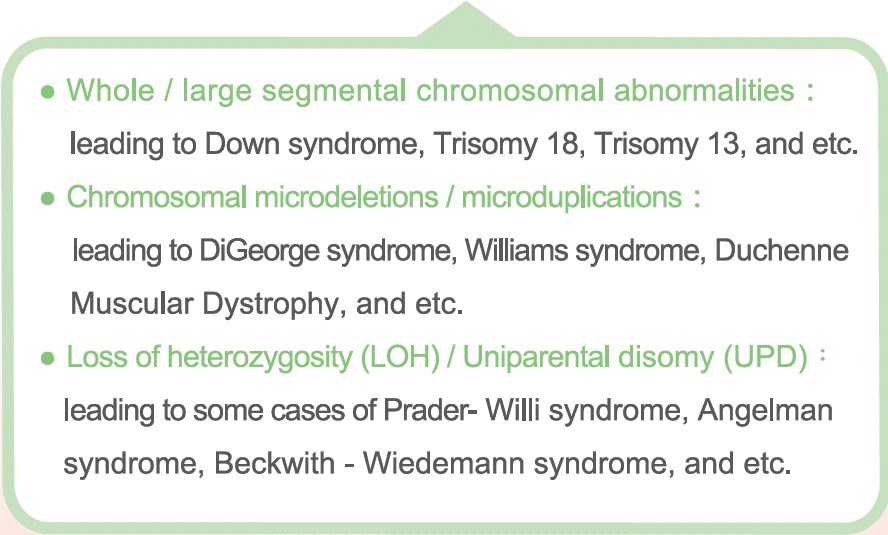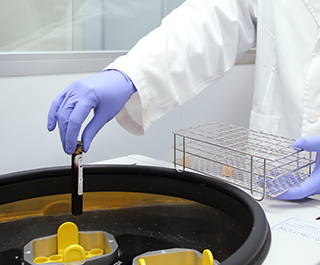SNPアレイ小児検査
Pediatric/Postnatal Genetic Testing - SNP Array
Chromosomal abnormalities cause diseases
The World Health Organization (WHO) estimates that 6-8% of children globally suffer from developmental delay. Approximately 60-80% of children with intellectual disability do not have significantly abnormal features and are therefore difficult to diagnose.
Symptoms like developmental delay, intellectual disability, or congenital anomalies can be results of genetic changes in human chromosomes. Identifying these underlying causes can guide medical management and give these children the most appropriate care they need and deserve.

The FIRST-TIER diagnostic test
The American College of Medical Genetics (ACMG), the American Academy of Pediatrics (AAP), the American Academy of Neurology (AAN) and the International Standards for Cytogenomic Arrays Consortium (ISCA) recommend the chromosomal microarray as the FIRST-TIER diagnostic test for individuals with unknown pediatric developmental delay, congenital abnormality, intellectual disorder or autistic spectrum disorder.




SNP array is more EFFICIENTLY
The microduplication or microdeletion of chromosome (<5 Mb) can lead to excess or shortage of the genes within that region, resulting in a person with intellectual disability, developmental delay, and/or congenital anomalies.
Currently, the commonly used genetic testing methods, such as karyotyping (G-banding) or array-based comparative genomic hybridization (array CGH), are limited by the comparatively lower-resolution and fewer types of genetic changes. Genetic variants such as loss of heterozygosity or triploidy are difficult to be detect using traditional methods.
GGA SNP array with its superior sensitivity and resolution is needed to determine the causes for clinical abnormalities. It is a more EFFICIENTLY testing to detect more small variation across the whole chromosome set and provide COMPREHENSIVE genetic counseling service, to aid physicians in clinical diagnosis and provide the most helpful medical management, and help parents understand recurrence risk and take action.

Why choose GGA SNP array
- COMPREHENSIVE genetic counseling
professional data analysis and counseling support to clinicians
- FASTER testing process
the result is available in a shorter time
- BETTER detection
more chromosomal abnormalities are detected, such as LOH, UPD, and triploidy
- HIGHER resolution
detection of small chromosomal variations, such as microduplication and microdeletion
When to consider testing
- Developmental delays
- Intellectual disabilities
- Autistic spectrum disorders
- Congenital defects/dysmorphism
- Other congenital anomalies with unknown cause

BETTER medical care
- Understand the disease prognosis and comorbidity information
- Early intervention
- Alter medical management

FASTER & MORE ACCURATE diagnosis
- End diagnostic odyssey and search for answers
- Alleviate anxiety and psychological burden due to uncertainty

BETTER family planning
- Clarify recurrence risk for future pregnancy
- Adjust reproductive plans
- More genetic testing options
Specimen requirement
- Whole Blood:3-5 mL in Lavender top tube (EDTA)
- DNA:more than 20 μL into eppendorf tube and seal with parafilm
(concentration of 50 ng/μL, 260/280 ratio greater than 1.8)
Storage and shipping: 4-25℃, specimen should arrive within 72 hours of collection
Turnaround time (TAT): 10 working days from receiving specimen





